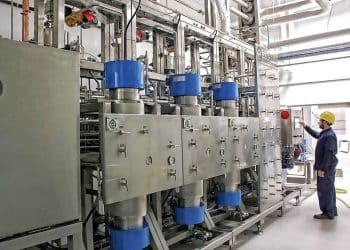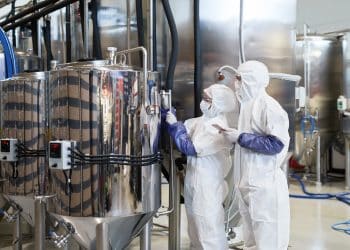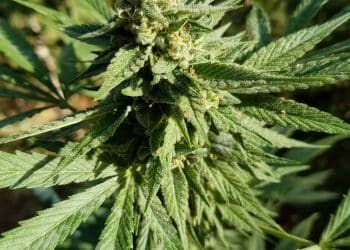Mobile Extraction Lab Technology Has Hit the Cannabis Market
Making high-quality cannabis extracts from safely-extracted materials has never been cheaper, easier, or eco-friendlier. However, buying extraction equipment and building an extraction lab is still a lengthy, tedious, and expensive process. The typical extraction machine currently on the market is expensive, slow, and difficult to operate.This is especially true of CO2 extractions.
Entrepreneurial companies have taken advantage of this gap in the industry by deploying mobile extraction laboratories to service the cannabis sector.The type of services which can be performed on these mobile platforms include:dehydration of plant material, cannabis grinding, solvent-based extraction and filtration, fractional distillation, and odor elimination systems (OES).
According to Shane Lander, President of Soma Labs Scientific, most CO2 extraction machines on the market are “high temperature, high pressure.” QuadronCannatechCorporation, a subsidiary of Soma Labs Scientific, is trying to change that. Lander and his team set out to redefine CO2 extraction by designing a new machine. “Mobile comes down to the size of the equipment, the energy footprint, and its ability to extract and simplicity to operate,” Lander said.By focusing on low-temperature CO2 extractions, Quadron’s mobile unit reduces the amount of power they consume, making the technology feasible.
Their team can have a machine set up in an hour, where a traditional extraction facility requires months of preparationand construction time. Lander asserts that you can get a full return-on-investment from his $200,000 machine within three months, depending on your cost of starting materials.
Some enterprising companies are also bringingmobile testing laboratories to market. Unlike mobile extraction facilities, however, mobile testing laboratories have a history of inadequate testing. The necessary assays cannot be performed in this setting, without extra diligence paid to proper instrument calibration and maintenance. The exception to this rule is those mobile laboratories that operate in conjunction with a central facility and only perform certain tests in their mobile lab, the remainder being referred back to their headquarters [1].
A really interesting direction mobile labs could take in the future is employing ionic liquid extractions, which reduce extraction times and appropriate pressures, while simultaneously increasing extract quality.
Ionic liquids (IL) are molten salts which liquify when temperatures are below 100 °C.They are typically composed a large, asymmetrical organic cation (positively-charged species) bound to an organic or inorganic anion (negatively-charged species). Beyond their excellent chemical, thermal, and electrochemical stability, ILs are inflammable, and negligibly volatile.
In the biofuels industry, they are recognized for their excellent ability to solvate a wide range of compounds and materials, and have already been studied for the extraction of terpenes and cannabinoid-like compounds [2]. Their selectivity as a solvent depends on their molecular make-up, and because ILs can be made from a large number of molecules in different combinations, it’s likely that very selective extractors of cannabinoids and terpenes can be found. The reason ILs have not been utilized more in biofuel and bio-based material R&D has been their expense.
A particular assessment of ILs studied their use in small-scale mobile plants for the extraction of the natural compound artemisinin. The study found exciting potential for the replacement of hexane (a six-carbon hydrocarbon with similar extraction properties as butane) in mobile facilities. It was concluded that “Ionic Liquids show considerable promise and with additional research it is expected that a specific ionic liquid can be identified which combines both high efficiency and speed of extraction” [3].
All extraction technologies represent a major investment in both time and money. The owners or investors need to ensure a return on their capital, whether they are a local co-op or a national brand. Mobile extraction services can be great way for a smaller company, or a company that exclusively deals with the cultivation of cannabis, to make their own extracts. These services increase the availability and access of extraction equipment to many entities who would otherwise simply not be able to or interested in creating their own extraction lab. Increased access means increased competition, but also lower prices and higher quality, which is good for you, the consumer. So honk your horn and snap a picture if you see a mobile extraction lab on their way to a job-site near you!
References
- Unger et al. Standards for Cannabis Testing Laboratories. Cannabis Safety Institute,2014 December.
- Ventura et al. Ionic-Liquid-Mediated Extraction and Separation Processes for Bioactive Compounds: Past, Present, and Future Trends. Chem Rev. 2017;117(10):6984-7052.
- Lapkin et al. Comparative assessment of technologies for extraction of artemisinin. J Nat Prod. 2006;69(11):1653-64.











